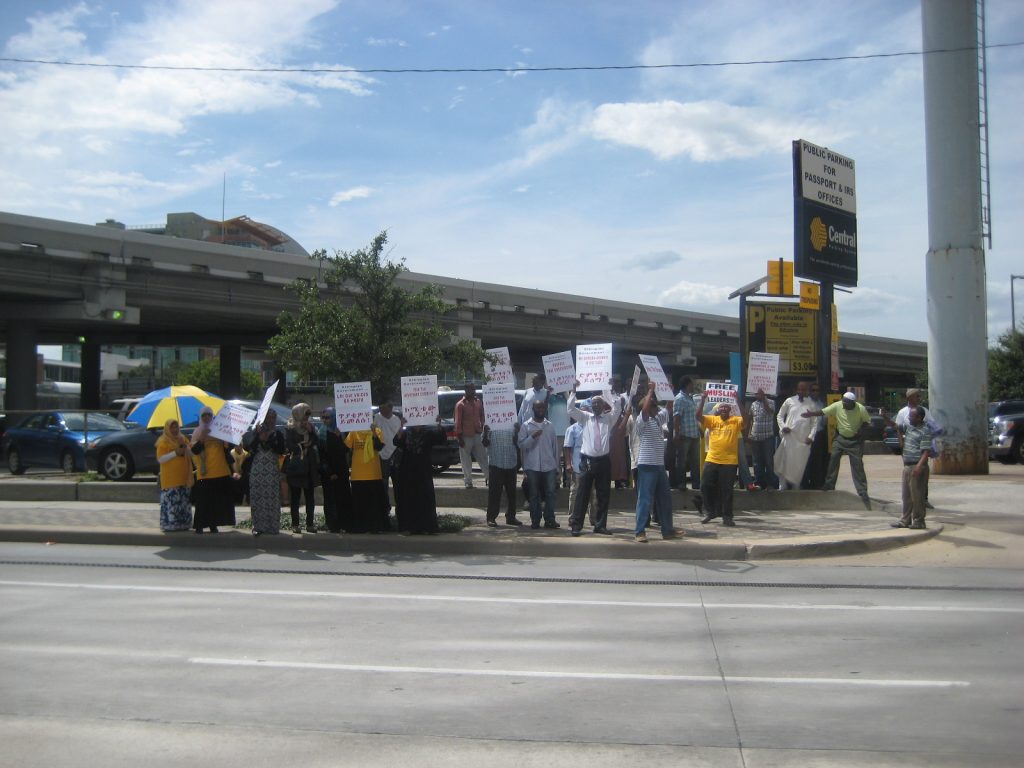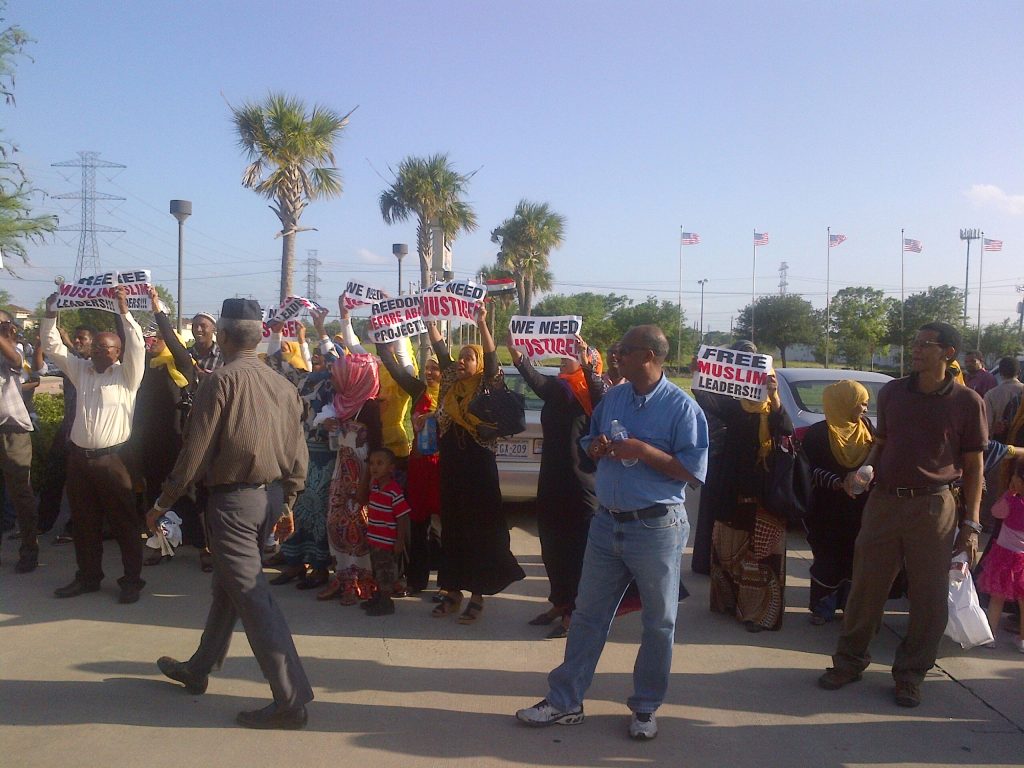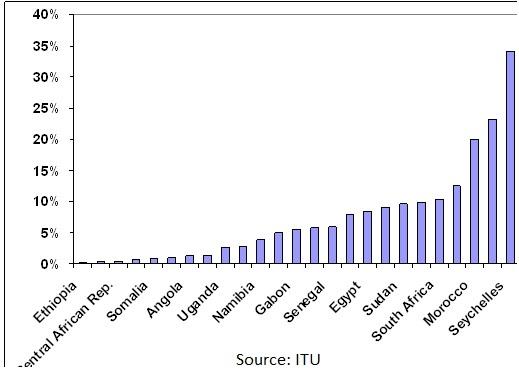Meles has received accolades from various sources, especially from western intellectuals and politicians. On the other hand, many Ethiopian observers see nothing redeeming, but malaise, destruction of Ethiopian nationalism, high inflation, ethnic tension, disfranchised people, and a nation lagging the world in all development benchmark.
The accusations by Ethiopians are numerous. He left a country more destitute and desperate than ever, primarily due to his control of every aspect of the economy, nepotism, and denial of access to technology.
He carved a false image abroad, but remained highly detested at home. He created a unique power based on one party dictatorship or Tigrean monopoly of power primarily by pitting one ethnic group against another. His critics say that Meles era was a lost and miserable two decades for Ethiopia in all aspects not forgetting absence of economic development, absence of national unity that Meles deliberately promoted.
He might appear brilliant for his supporters and some in the West, but he was perceived as an evil dictator and deeply resentful of the Ethiopian state. Meles used brute force at home and a massive PR machine abroad to crowd out the opposition and to hide his evil designs.
Internationally, far too many individuals have become unintentional victim and a party to the Ethiopian untold tragedy. Meles has on his side notables like, Susan Rice, Joseph Stiglitz, Paul Krugman, Donald Levine, Dick Army, Nancy Polesi (via Richard Gephardt), Senator James Inhofe and more.
He has hired who is who in America to parlay non-existing achievement. He has become a modern alchemist, who invents something out of nothing, higher GDP in land of abject poverty and starvation, democracy in land of oppression.
Meles sounded great on many fronts on prima facie; however, further scrutiny turns out that he has been a disaster for Ethiopia in many areas: economy, national unity, social cohesion, and hope for the new generation.
Unraveling his economic system shows it is built on wrong statistics and baked to show an illusion of progress, by showcasing big projects such as the construction of the Nile Dam, which is a gigantic misuse of resource that will unravel sooner or later.
Meles’ era will leave a huge cleavage of cicatrize of a scar that will never heal from the wedges he promoted, from making Ethiopia landlocked, denial of access to technology, and from driving the economy into the shades in his attempt to enrich his clan, with little empathy for the rest of Ethiopia.
Despite Meles’ rhetoric about transforming Ethiopia, Ethiopia was found to be one of the failed states following countries like Somalia, Chad, and others.
Meles besides putting or wasting Ethiopia’s meager resources in projects with no investment merits such as the Nile Dam, a Wind Turbine ($220 million Euro) in Tigre, the Tekeze hydroelectric dam ($360 million dollars) in Tigre, and planned Rails from Djibouti to Mekele, failed to articulate or deploy the most important economic tool, efficient allocation of scare resources, such as capital. This also vindicates those of us who stated that he is leading Ethiopia not only to a failed estate, but close to an economic Armageddon (see Voodoo economics…) at http:www.ethiodemocat.com.
The Index published by Foreign Policy magazine and the Fund for Peace found that Ethiopia is critically in danger of becoming a failed estate based on demographic pressure, refugee flows, group grievances, human rights violations, uneven development, economic decline, and the continued deligitimization of Ethiopian nationalism. The most vulnerable states next to Ethiopia are Somalia, Chad, Sudan, the Democratic Republic of Congo and Haiti.
None of these countries had such a flamboyant and arrogant leader like Meles, who brags about a fabricated GDP growth data to keep his wretched rule and continued economic decline of the wretched country.
Though Ethiopia is the birth place of humanity and one of the cradles of civilizations, but for the last four decades, it has been one of the most wretched places on earth with little hope of reversing worst case scenario given the current leadership of the country.
With the arrival of Meles, secessionist and anti-Ethiopian force mushroomed supported by his ethnic federalism disrupting commerce and the natural flow of trade, destroying institutions and promoting ethnic and religious division once in a very cohesive nation.
To stifle further the country’s economic growth, Meles created ethnic blocks like in Apartheid South Africa, thus creating tensions and making commerce almost impossible among some Ethiopians, cutting existing trades’ relations, while Europe was forming the European Union and the U.S. was pushing the North American Free Trade Agreement. In Ethiopia traders or business people, primarily Gurages were massacred and their possession ransacked by ethnic groups aligned with Meles and by his own cronies. In some cases, TPLF cadres used their access to import duty free thus driving the competition out of business or outright denial of licenses or charging exorbitant taxes to put mostly Gurages out of business. To his own credit, Meles clearly stated that the Amharas in politics and the Gurages in commerce as his primary enemies that he has to eliminate to take full control of the economy and the country.
To add insult to injury, he confiscated land and denied access to technology for the majority, except in Tigre where Mekele, Adwa University and Mekele Institute of Technology (MIT) are provided unfettered access and grants.
The advent of Internet and technology as a whole was heralded by some as a panacea to ending not only the economic divide between the have and the have-nots, but also between the developing countries and the developed world. Unfortunately, Ethiopia was left out by design by Meles because Meles was afraid that technology will be used to organize against him by the majority of Ethiopians that he knew detested his dictatorship.
Ethiopia land locked, void of access to technology, void of free market and good leadership was toiling on the brink of economic disaster that will lead to further starvation and famine beyond the current millions being fed by World Food Program.
Government ownership of major resources including land, Internet, denial of access to technology, and being landlocked remain as a major road block to rapid economic growth.
|
Ethiopia needs an industrial policy that will move it from an agrarian society to a technology driven society. The normal course was from Agriculture, to manufacturing, and industrialization, but with the right leadership, technology makes it possible to move to technological society by skipping all the other steps and create a higher standard of living.
Technology or reengineering has been the most important productivity tools for economic growth, however, like land it is controlled by the government. In Ethiopia technology is primarily used for spying on Ethiopians and blocking websites.
Access to technology is correlated to a higher standard of living for current and future generation. Government ownership of major resources including land, denial of access to technology, being landlocked remains as a major road block to rapid economic growth.
Land ownership of the state is not for any altruistic reason, it is primarily to manipulate the political currents and to keep the majority of Ethiopians who rely on agriculture a hostage.
Despite creating these roadblocks, Meles has stated that the Ethiopian economy will grow 11-14.5 % in the next five years. No landlocked country or no country in Africa, especially a country estranged within by lack of free market, lack of access to technology, respect for property rights and human rights or forced into tribal polarization can enjoy such phenomenal economic growth.
According to data provided by Meles to the CIA and World Bank, Ethiopia’s GDP per capita was close to $100 in 1991 when Meles starting ruling the country. Now, it is reported to be $324, better than a threefold increase which is much better than many countries in Asia. For example, China’s growth is driven by manufacturing, technology and education, but in Ethiopia access o technology or manufacturing has not changed much for the last 20 years. Education has lost ground with the introduction of ethnic education, where the majority of ethnic groups are encouraged or forced to use their own ethnic language without requiring them to learn the official language or English; a recipe for disintegration of the country.
How did Meles got away with such statistical absurdity. My guess that he was adept in charming world leaders from Tony Blair to Jimmy Carter, and built a PR machine at home and abroad using the meager funds the country ill afford. Like other dictators he will fall from grace and his true achievement will be dissected and he will be castigated as one of the worst and strange dictators that ever ruled Ethiopia.
It will be easy to compare Meles with another evil genius, Leopold II of Belgium who committed murder and looting of the Congo from 1865-1909. Leopold II was the most brutal ruler of Congo; he controlled a country many times the size of Belgium as his personal domain through his private army, like Meles. Unlike Meles, he was eventually forced to end his evil rule after the conscience of the Western world could not bear it any more. Meles passed away still charming and fooling the Western world.
Despite Meles or TPLF rhetoric about transforming Ethiopia, the country remains one of the failed states, as demonstrated by its ranking of 174 among 180 countries in terms of human development index.
In the end – Meles may be called just a dictator par excellence with extraordinary charm, and wit, but with a terrible legacy for Ethiopia to deserve an accolade accorded to him by his western allies.
Dula Abdu writes on economics, technology and real estate and he can be reached at dula06@gmail.com. He was a former JPMorgan Chase banker and currently an Adjunct Professor of Economics at Texas Southern University. The article was an adaption of from an original piece entitled “Evil Genius…”




